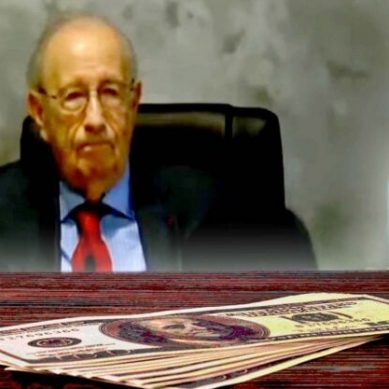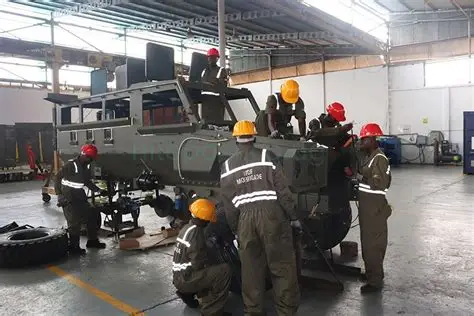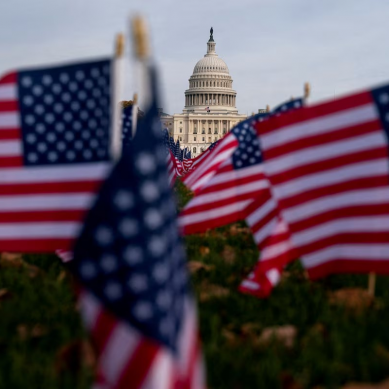
Some former Proud Boys have abandoned the group for other, more overtly racist and violent groups, including the neo-Nazi Blood Tribe and the underground “Active Club” scene, a white supremacist male movement, a Proud Boy reveals.
Julie Farnam, a former US Capitol Police assistant director of intelligence who now runs a private investigative agency, said there are 154 Proud Boy chapters in 48 US states. Farnam also said the Proud Boys appear to be growing overseas and have 18 international chapters in nine countries, based on her monitoring of the group’s social media activity, although their size is unclear.
“It has grown and I don’t see any evidence it’s slowing down,” she said. Canada and New Zealand have designated the Proud Boys a terrorist group.
As they regroup in the United States, the Proud Boys face infighting between what insiders refer to as a “Standard” or “Rogue” wing and a “National” or “Traditional” wing. The dispute began after one leader accused another of publishing identifying information about him, forcing others to take sides, said Gavin McInnes, a British-born far-right commentator who lives in New York. Rival members brawled at an autumn gathering in Las Vegas, and some of the most extreme white nationalist Proud Boys have gravitated to the Standard faction, one Proud Boy explained.
McInnes said he couldn’t resolve the split and dismissed it as growing pains. “Every club, when they start getting big, they start splintering and infighting,” he said, adding that recruitment is still growing.
Born in England and raised in Canada, McInnes co-founded Vice magazine in 1994 and remains a vocal force in far-right circles. With his groomed beard and retro horn-rimmed glasses, he resembles a hipster from Brooklyn, where he lived in a luxury penthouse apartment before moving to the New York suburbs. He runs a show on his own website, Censored TV, which streams right-wing podcasts. The show’s backdrop features the Proud Boys insignia next to an American flag with “PB” where the stars ought to be.
He founded the Proud Boys during the 2016 presidential election. Two years later, after a brawl in New York City where Proud Boys were arrested, he distanced himself from the group.
McInnes says he resigned to make it more difficult for prosecutors to allege that the group operated like a gang with top-down leadership and thus prevent arrested Proud Boys from receiving lengthier sentences.
He evoked a parallel with the Hells Angels, a hard-charging motorcycle club that revels in violence, including attacks on anti-war protesters in the 1960s. The Justice Department describes the Hells Angels as “a serious national domestic threat” and blames it for a host of criminal activity, including drug-trafficking and violent crimes. The group has no formal overall leader.
“These defendants saw themselves as Donald Trump’s army, fighting to keep their preferred leader in power no matter what the law or the courts had to say about it.”
McInnes said the Proud Boys adopted a loose organizational structure similar to the Hells Angels partly to avoid federal charges under the Racketeer Influenced and Corrupt Organizations Act, or RICO. That law was originally passed in 1970 to help tie Mafia bosses to the crimes of their underlings by allowing prosecutors to argue they conspired together in a criminal enterprise.
“You know, the way Hells Angels can avoid RICO charges is they have their autonomous constitution, and there’s no top-down leadership. But if you have top-down leadership,” McInnes added, “you’re going to get gang charges.”
San Francisco lawyer Jai Gohel, who has represented the Hells Angels in state and federal cases for more than 20 years, said the structure of the Hells Angels wasn’t designed specifically to avoid RICO prosecutions and that individual local chapters sometimes face such charges.
If the Proud Boys ever faced a nationwide RICO prosecution, the new structure could “lessen the damage to uninvolved chapters or uninvolved leaders,” said Columbia Law School professor Daniel Richman. But the Proud Boys still remain vulnerable to prosecution, he said, noting that Hells Angels members and leaders are often charged with crimes regardless of the group’s structure.
McInnes won’t say specifically whether or not he’s still a Proud Boy. “For legal reasons,” he said, “I have to remain ambiguous about it.” He also doesn’t like the idea of leading, he added. “That’s for megalomaniac cult leaders.”
McInnes was succeeded by Henry “Enrique” Tarrio, a Floridian of Afro-Cuban descent, was sentenced last September to 22 years in prison for seditious conspiracy. Tarrio, an avid Trump supporter served as the Florida director of “Latinos for Trump,” a political action committee. Tarrio propelled the Proud Boys into politics and, with his immigrant background, was seen by some members as helpful in deflecting charges of racism. One Proud Boy says the group considered Tarrio’s ethnicity a public relations advantage.
Tarrio built a bridge between the far-right and Trump-era Washington. He was photographed inside the gates of the White House and was an associate of Trump advisor Roger Stone, who had “a longstanding, close relationship with the Proud Boys,” according to congressional investigators. When contacted, Stone declined to answer questions about Tarrio. He said he knows members of the Proud Boys but has “no formal nor informal relationship with the organisation.”
In November and December 2020, Tarrio led the Proud Boys through the streets of DC after Trump’s loss and burned a Black Lives Matter banner during a demonstration by Trump supporters. He is now held at a medium-security federal prison in Kentucky. Freeing him and dozens of other Proud Boys jailed for the Capitol riots is the group’s new call to action. In at least three rallies this year, Proud Boys have held up signs calling for their freedom.
A Proud Boy holding one such sign at Trump’s Bedminster rally said the sentences were too severe, echoing comments by many members. Asked if Trump will free the Proud Boys if elected, the member replied: “I would hope so. He said he will.”
Trump said in March that if he wins the election, one of his first acts would be to “free” those charged of crimes related to the Capitol siege – a group numbering more than 1,400, whom Trump has described as “patriots” and “hostages.” They include violent offenders caught on video brandishing stun guns, flagpoles, firearms and other weapons in the attack that injured about 140 police officers. Trump himself is facing felony criminal charges in connection with the January 6 riot.
At a May 2023 town hall, Trump didn’t rule out pardoning the Proud Boys. “I’d have to look at their case,” he said. Trump’s spokesperson, Steven Cheung, did not respond to an email asking if Trump planned to pardon the Proud Boys or had been in communication with them.
Farnam, the former US Capitol Police assistant director, said the possibility of pardons is a powerful motivator for the Proud Boys to re-emerge as street soldiers for Trump in the upcoming election.
McInnes scoffs at that idea. Trump doesn’t control them, he said. “Give me a scenario where Trump calls Proud Boys … and he says, ‘I need you guys. I need you here on this date.’ Like, is that what leftists really believe?”
But Trump doesn’t need a phone call to mobilise them, said some members of the group and experts who study it. While there’s no evidence that Trump directly contacted the Proud Boys to engage in violence on January 6, 2021, congressional investigators said he sent them strong signals, including a December 19, 2020, tweet where he called for his supporters to mass in Washington: “Be there, will be wild!”
“For the Proud Boys,” the congressional investigators wrote, “President Trump’s tweet set in motion a chain of events that led directly to the attack on the Capitol.” After that tweet, Tarrio created a new encrypted chat to organise the Proud Boys for January 6, prosecutors told a federal jury last year.
The Proud Boys also seized on Trump’s comment to “stand back and stand by” a few months earlier in September 2020. Tarrio quickly replied, “standing by,” in a post on the now-defunct site Parler. Some Proud Boys incorporated the phrase into the group’s logo. McInnes uses audio of Trump’s comment over graphics of the Proud Boys insignia on his online TV show.
A Trump attorney has said in federal court that Trump’s speeches and tweets did not incite violence.
Today, many Proud Boys want Trump back in power, not just because of the prospect of pardons. For some, his appeal reflects a deeper cultural shift in America – from unease at changing racial and ethnic demographics to anger over immigration and a perception on the right that liberals are destroying the country. Trump frequently exploits those grievances on the campaign trail in apocalyptic language that’s echoed by some Proud Boys.
“If Trump loses, our republic, the country goes away. Bad things are going to happen,” said Michale Graves, a Proud Boy and former lead singer of the Misfits punk band.
Graves is an unusual figure in the movement. He doesn’t wear the Fred Perry polo shirts with a laurel wreath logo favoured by the group and says he joined mainly to be contrarian. In March, he performed at Cactus Jack’s Bar & Grill in Phoenix, Arizona, to an enthusiastic crowd that included a few Proud Boys. He wore a ball cap on his shaved head and a black button-down shirt, as he sang the Misfits classic “Saturday Night,” a horror-punk ballad about murder.
Many of the Proud Boys that show up at his gigs expect mass uprisings in the coming election, Graves said. “People who come to the shows are talking about this giant confrontation.”
As he played, three men sat on bar stools near the door, their shirts embroidered with the distinctive wreath of a Proud Boys Arizona chapter: a skull in a cowboy hat, set between two revolvers. One shunted off questions from this reporter with a warning look. “We’re just music fans,” he said.
Another had the words “Proud Boy” tattooed on his forearm and claimed he was an “Elder” in the organization. He said no one in his chapter would ever talk to the media. Reminded that Tarrio, the jailed past chairman, used to talk incessantly to reporters, he chuckled.
“We’re still here. But we’ve changed.”
- A Reuters report







